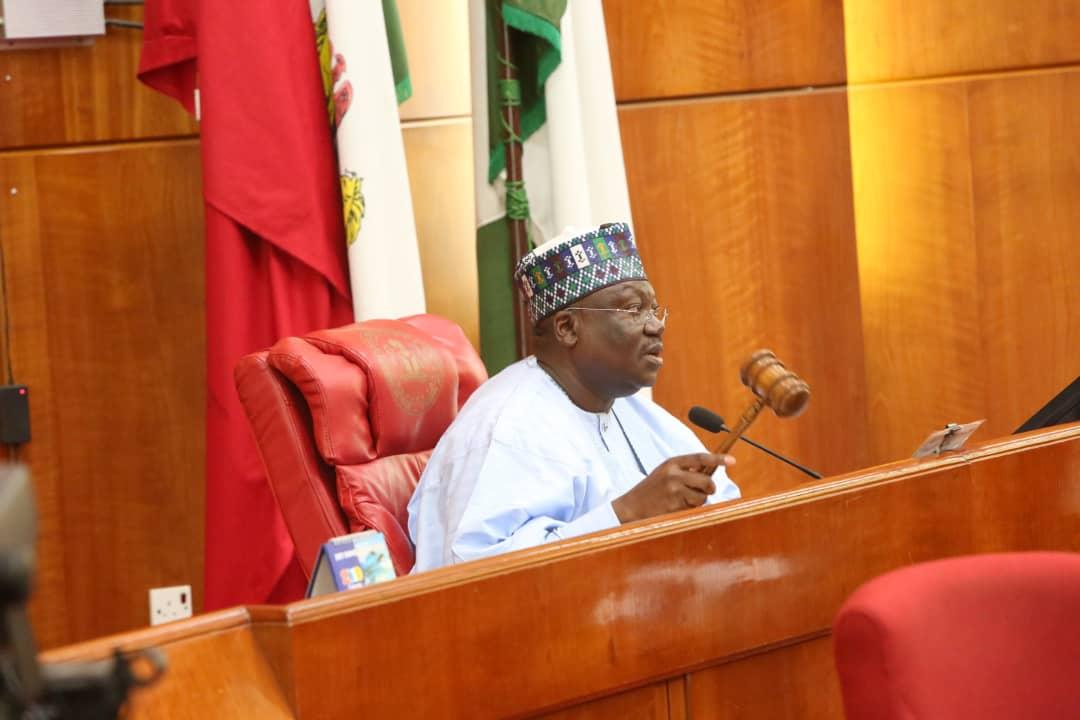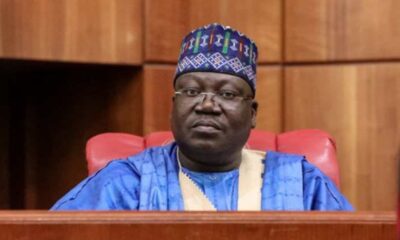Society
Senate President, Lawan Tells What Will Boost Health Sector
“…the COVID-19 pandemic has exposed how weak our health institutions are”

President of the Senate, Ahmad Lawan, on Tuesday, has called for more investments in the health sector to strengthen the country’s relevant institutions and secure the health of citizens.
Lawan made the call in his remarks after a point of order raised by Senator Yahaya Oloriegbe (APC, Kwara Central), on the “Need to Prioritize Health and Strengthen Efforts to Accelerate and Achieve Universal Health Coverage in Nigeria.”
According to the Senate President, the presence of adequate investments in the health sector would insulate the country’s health institutions in moments of emergencies.
Lawan said, “The matter you have raised is not open to debate, but let me thank you for bringing it to our notice, and also the notice of the general public, on the need to prioritize health and strengthen efforts to accelerate and achieve universal health coverage in our country.
“Surely, the COVID-19 pandemic has exposed how weak our health institutions are and, of course, the inadequacy of the institutions.
“[And] this means we have to invest more and more and more in the health sector to secure the health of citizens of our country.”
Senator Oloriegbe, while coming under Order 43 of the Senate Rules, noted that the United Nations (UN) designated the 12th Day of December to commemorate the Universal Health Coverage (UHC) Day, and raise awareness of the need for strong, equitable and resilient health systems all over the world.
According to the lawmaker, the Universal Health Coverage in principle, makes it a priority for citizens of every country, no matter their socio-economic status, to have access to quality and essential health care services without suffering financial hardship.
He further noted that the Federal Government of Nigeria made several commitments and efforts in its journey to achieving Universal Health Coverage.
He explained that these efforts include Nigeria’s signatory to several international treaties and resolutions on health, including the Abuja Declaration.
The lawmaker commended the Government for its commitment and progress made so far in providing access to quality healthcare services and improving health care delivery at all levels.
He also lauded the National Assembly for its commitment and key interventions to support UHC objectives.
“The National Assembly is currently concluding legislative processes on the National Health Insurance Scheme Amendment Bill – The National Health Insurance Authority Bill which proposes to make health insurance mandatory in the country if passed into law and accelerate progress towards UHC.
“Worried that these conscientious efforts have not translated to the desired improvement in Nigeria’s health indices and outcomes characterized by high under-five mortality rate, high maternal mortality rate, high disease burden, insufficient health workforce among others; hence the current gaps noticeable and the very slow pace in Nigeria’s journey to achieving UHC;
“Also worried that most of the health policies which were painstakingly developed to advance healthcare delivery and particularly ensure healthcare coverage have recorded low levels of implementation.
“Concerned that Nigeria is currently among one of the countries spending the least on health despite the huge implications of a healthy citizenry on the socio-economic development of every notion.
“This is the major reason for the unacceptable high level of out-of-pocket expenditure for health and contributes to the high rate of catastrophic health spending leading many families into poverty in Nigeria.
“It has been established that the number of people living in poverty will increase to 90 million by 2022.
“This will continue to hamper development objectives with a huge implication on the seCurity and continued existence of the entity called Nigeria.
“Concerned that the suboptimal public investment and spending for health as well as low levels of implementation of health policies especially the BHCPF among many other issues and challenges can hinder Nigeria’s progress towards achieving UHC and other related SDGS Targets and Goals by 2030”, Oloriegbe said.
The lawmaker, accordingly, urged the Federal Ministry of Finance, Budget and National Planning and the Federal Ministry of Health to immediately release and implement approved funds earmarked for the Basic Health Care Provision Fund (BHCPF).
He advised the Federal Ministry of Health and its relevant Departments and Agencies to strengthen health security infrastructure and fully implement the National Action Plan on Health Security
Oloriegbe also tasked the Federal Ministries of Finance and Health and other relevant agencies to identity robust health financing structures and mechanisms that would enable Nigeria achieve UHC by year 2030.













